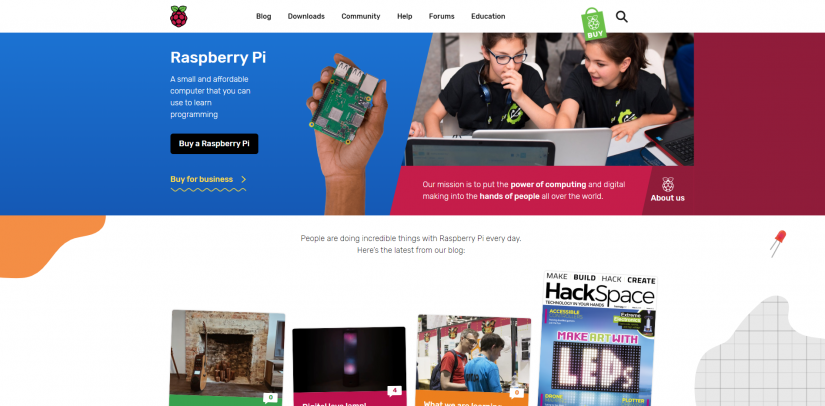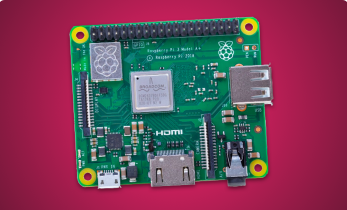The Single-Board Computer Proliferation Problem
The Raspberry Pi remains the legend that it was at its launch. Despite the bevy of single-board computers (SBCs) on the market, the Raspberry Pi remains the most popular maker board you can buy. But there's a reason these development boards are dubbed Raspberry Pi competitors: because try as they might, few boards have succeeded in usurping, let alone matching, the Raspberry Pi's prowess. Thus, we're left with a single-board computer proliferation problem.
What is the Single-Board Computer Proliferation?
Maker boards range from the ultra-compact and affordable Raspberry Pi Zero to the UDOO Bolt with its impressive AMD Embedded V1000 chip, and the LattePanda from DFRobot. Manufacturers churn out alternatives to the Raspberry Pi. Often, manufacturers offer several different boards, all with varying processors.
Banana Pi, for instance, makes the Banana Pi R2, Banana Pi R64, Banana Pi P2 Zero, and more. Among its SBCs, Odroid provides the Odroid XU4, Odroid C2, and Odroid H2. Orange Pi has its Orange Pi Prime, Orange Prime PC, and Orange Pi 3. With manufacturers offering sometimes ten or twenty boards, there are loads of options. But that's a positive, right? Well, sort of. While there's ample choice, many of these devices ultimately fail from lack of support, community, and resources.
Varied Pricing
Though the Raspberry Pi isn't necessarily the most powerful dev board, its competitive pricing encourages adoption. At a mere $35 USD, you can snag a computer ready for use out-of-the-box, just add an operating system (OS). You'll find much more capable hardware in the Odroid XU4, UDOO Bolt, and ASUS Tinker Board. Unfortunately, it's often tough to compare the Pi with other SBCs since retail prices vary. The Tinker Board, available in the vanilla Tinker Board and the Tinker Board S, clocks in around $65. Likewise, the Odroid XU4 is around $60. For a UDOO Bolt, you'll need to plunk down $229 for the base model. Granted, you gain a significant performance boost for the money. Still, it's difficult calling a $100 plus board a Raspberry Pi competitor when it's three times the cost of the Pi.
Community and Support
Though pricing may be justified by brute force processing power, community and support maintain the Raspberry Pi's status as SBC supreme. Moreover, it discourages the adoption of lesser-known boards. Raspberry Pi resources range from subreddits to the Raspberry Pi Foundation website, books, online courses, and tutorials like those here on Electromaker.
With many SBCs, you'll find few if any communities. The Tinker Board subreddit with its over 400 subscribers pales in comparison to the thousands and even millions of Raspberry Pi subscribers. As such, for support, you're often on your own with non-Pi boards. If you've got a Raspberry Pi question, chances are there's an answer somewhere on the Internet, or someone willing and able to assist in a forum.
Lacking Resources
This community support, in turn, directly corresponds to resources. You'll find loads of official and third-party Raspberry Pi OSes, software options, and accessories like cases. When testing out my Banana Pi R2, I found certain operating systems such as OpenWRT to function flawlessly, while others were so buggy I couldn't even get them to properly boot.
Often, when a new dev board debuts, its spec sheet boasts incredible features including 4K playback, Android support, and more RAM than popular SBCs such as the Raspberry Pi. But if there's little development for such boards, users can't take advantage of their hardware. It doesn't matter if on paper a maker board touts 4K video output, Android support, and the latest Linux kernel compatibility if no quality distros are maintained. When I got hands-on with Station OS, I was thrilled about the potential of an Android retro gaming and HTPC image ready to use out-of-the-box. Unfortunately, getting started was a challenge since help docs are virtually nonexistent.
Stratified Hardware
While great choice means tons of hardware, there's an issue of stratification. Even among device manufacturers, maker boards often utilize different system on a chip (SoC) versions. Libre Computer, for instance, has its Libre Computer ROC Renegade, Libre Computer Le Potato, and ALL-H3-CC. Each uses a different SoC. x86 SBCs further complicate the single-board computer proliferation problem. As such there's very little standardization with software.
On the one hand, that translates to additional choices and a range of operating systems. Yet this also means it can be difficult to find compatible distros for less popular boards. Moreover, accessories vary. Some boards like the ASUS Tinker Board and ALL-H3-CC come in an identical form factor to the Raspberry Pi ensuring compatibility with most Raspberry Pi cases. Since the Pi is sort of the industry standard, many accessories offer compatibility with the Pi. Functionality is pretty hit or miss. Differing SoCs and form factors means a spaghetti mess of hardware. With desktops, there motherboards come in standard sizes like ATX, ITX, and Mini ITX. It would be fantastic for maker boards to adopt a similar system so that universal accessories could be released. Likewise, a regulated SoC system as with desktop and laptop CPUs could solve the issue of OS and software compatibility.
Benefits of the Plethora of Maker Boards
Although there are tons of dev boards plagued by shoddy support, sparse communities, and few accessories, that's not a reason to avoid these SBCs altogether. Instead, here's a call to action: pick up a lesser-known maker board and play around with it. Get involved posting in forums for that device, try out some of its OSes, and share what works and what's buggy.
Luckily, a handful of maker boards have begun to rise in popularity. Reportedly, ASUS Tinker Boards started popping up on shelves in Fry's Electronics outlets. RetroPie announced support for the Tinker Board, though there's no standalone image yet. Libre Computer devices typically provide excellent quality and a choice of well-maintained distros. Odroid consistently debuts superb hardware and accessories, including NAS cases and retro gaming shells.
Single-Board Computers: When There's Sometimes Too Much of a Good Thing
Ultimately, I'm a huge fan of many Raspberry Pi alternatives. The one element which keeps me coming back to the Pi is simplicity. If I encounter a problem or have a question, there's usually an answer documented somewhere. The same can't be said for lots of competing boards. Still, I hope to see more users try out other maker boards despite variable pricing, spotty support, and dwindling communities. My favorites include the Tinker Board, Odroid offerings, Libre Computer boards, and UDOO hardware. Hardkernel supports its Odroid boards really well, even offering custom cases such as the OGST Gaming Kit. Others like Banana Pi boards lack many accessories. Without thriving userbases though, there's little reason to maintain OSes and produce accessories for non-Raspberry Pi boards. As makers, it's out duty to get our hands dirty and adopt some of these.
Your turn: Have you tried out any single-board computers? Which do you like or dislike, and why?













































Leave your feedback...